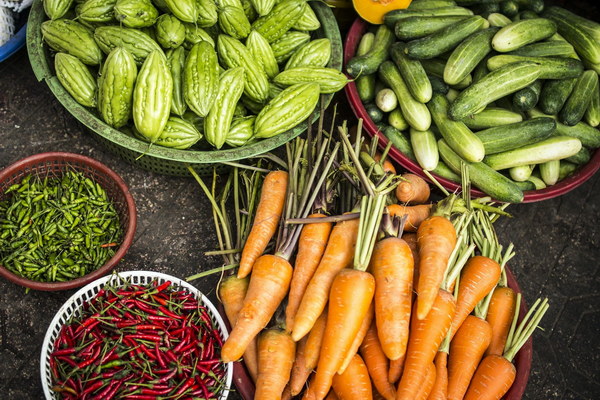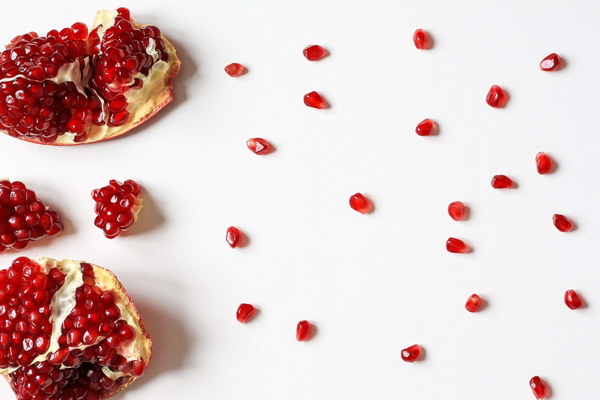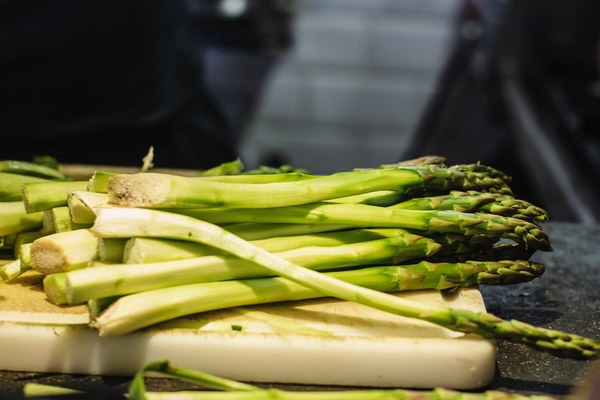Revitalizing Qi and Blood A Comprehensive Guide to Herbs for Nourishing the Spleen and Stomach
In traditional Chinese medicine (TCM), the concept of balancing the body's vital energies, or Qi and Blood, is fundamental to maintaining health. The spleen and stomach are considered crucial organs in this system, as they are responsible for the digestion and absorption of nutrients, which in turn, are essential for the production of Qi and Blood. This article delves into the world of herbs that are specifically used to nourish the spleen and stomach, thereby enhancing the body's overall vitality and health.
Understanding the Spleen and Stomach in TCM
In TCM, the spleen and stomach are seen as the foundation of the body's digestive and metabolic processes. The spleen, known as the Principal Transformer, transforms the food we eat into Qi and Blood. The stomach, on the other hand, is responsible for the initial digestion of food. Together, they ensure that the body receives the nutrients necessary for growth, repair, and overall energy.
When these organs are not functioning optimally, it can lead to a variety of symptoms, including fatigue, weakness, poor appetite, and digestive issues. Herbs that are classified as spleen and stomach tonics are used to address these imbalances.
Herbs for Nourishing the Spleen and Stomach
1. Astragalus (Huang Qi)
- Known for its immune-boosting properties, Astragalus is a powerful spleen and lung tonic. It helps to strengthen the body's overall resistance and improve energy levels.
2. Codonopsis (Dang Shen)

- Codonopsis is a well-regarded herb for its ability to replenish Qi and Blood. It is often used in formulas for chronic fatigue, weakness, and poor appetite.
3. Licorice Root (Gan Cao)
- Licorice root is a versatile herb that helps to harmonize other ingredients in a formula. It also has its own nourishing properties, supporting the spleen and stomach and aiding in digestion.
4. Poria (Fu Ling)
- Poria is a mushroom-like herb that is excellent for draining dampness and improving the flow of Qi in the spleen and stomach. It is often used to treat bloating, edema, and general weakness.
5. Bupleurum (Chai Hu)
- Bupleurum is used to relieve stagnation and heat in the liver and spleen. It is beneficial for those with spleen deficiency accompanied by liver Qi stagnation.
6. Dioscorea (Shan Yao)
- Dioscorea is a sweet-tasting root that is known for its ability to nourish the spleen, stomach, and kidneys. It is particularly useful for replenishing Qi and treating chronic diarrhea.
7. Cinnamon Bark (Rou Gui)
- Cinnamon bark is a warming herb that helps to tonify the spleen and stomach, especially in cases of cold and weak digestion. It is often combined with other herbs for its warming properties.
Combining Herbs for Optimal Results
The effectiveness of these herbs is often maximized when used in combination. TCM practitioners may create personalized formulas based on the individual's specific constitution and symptoms. For example, a formula for spleen and stomach Qi deficiency might include Astragalus, Codonopsis, and Licorice root, while a formula for spleen and stomach dampness may include Poria and Dioscorea.
Conclusion
Herbs that nourish the spleen and stomach are a cornerstone of TCM, offering a natural and holistic approach to improving energy levels, digestion, and overall health. By understanding the properties and combinations of these herbs, individuals can take steps to support their spleen and stomach, leading to a more vibrant and balanced life. It is always advisable to consult with a qualified TCM practitioner before starting any herbal treatment to ensure it is appropriate for one's specific health needs.









